|
|
|
|
Nau mai haere mai, welcome to this week’s newsletter.
The occupation of parliament grounds by a disparate coalition of anti-vaccine mandate activists, conspiracy theorists and political fringe-dwellers has variously bemused, annoyed and appalled many New Zealanders.
While there have been attempts, both from the protesters themselves and a few mainstream commentators, to paint the occupation as coherent and worth engaging with, there has been no denying a darker side of violent rhetoric, threats and intimidation.
Nor is it a local phenomenon. From Canada to Canberra, governments are grappling with how to deal with this globalised “freedom” movement without inflaming an already febrile situation. As criminologist Ross Hendy writes, this also puts police between a rock and a hard place. So far, patience has won the day – but it may be running out.
There’s always more to read here and on our homepage, of course, including this fascinating insight into how the unique culture and camaraderie of action sports seem to be adding years to athletes’ careers – meaning Winter Olympics star
Zoi Sadowski-Synott probably has a few more medals to win yet.
Take care and all the best till next time, mā te wā.
|

|
Finlay Macdonald
New Zealand Senior Editor & NZ Editor: Politics, Business + Arts
|
|

AAP
Ross Hendy, Monash University
With the occupation of parliament grounds entering its second week, police walk a thin blue line between enforcing the law and not inflaming the situation.
|
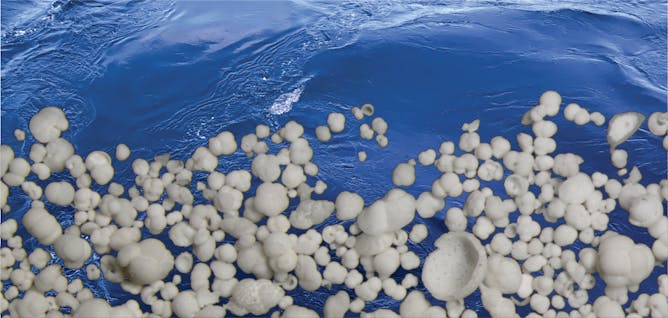
forams.
Rupert Sutherland, Te Herenga Waka — Victoria University of Wellington; Laia Alegret, Universidad de Zaragoza
Tiny seashells draw carbon to the ocean floor when they die. This is the most significant geological process of carbon storage today, and it might increase in a warmer world, as it did in the past.
|
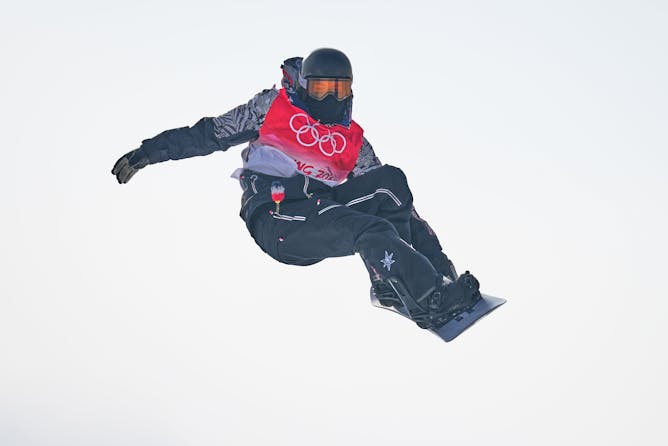
Veteran snowboarder Shaun White in action at the Beijing Winter Olympics.
GettyImages
Holly Thorpe, University of Waikato; Belinda Wheaton, University of Waikato; Nick Maitland, University of Canterbury
As the Winter Olympics are showing, the unique cultures of action sports seem to support long careers among the top athletes – something other sports and society in general could learn from.
|
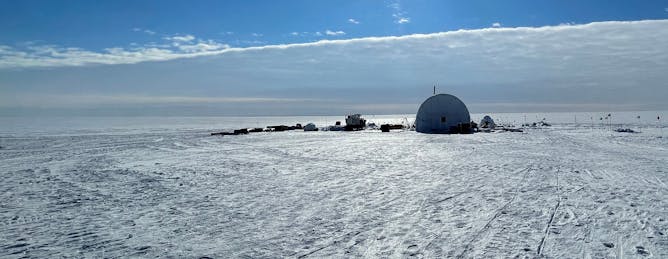
The project’s drill rig on the slopes of the Kamb Ice Stream.
Huw Joseph Horgan, Te Herenga Waka — Victoria University of Wellington; Craig Stevens, National Institute of Water and Atmospheric Research
Researchers have surveyed an Antarctic under-ice river for the first time directly, and their observations support the idea that such sub-glacial rivers form estuaries as they flow into the ocean.
|

IMDB
Gregory Camp, University of Auckland
In the early 1970s, the movie musical was calling for a radical approach: Cabaret would be that groundbreaking revision.
|
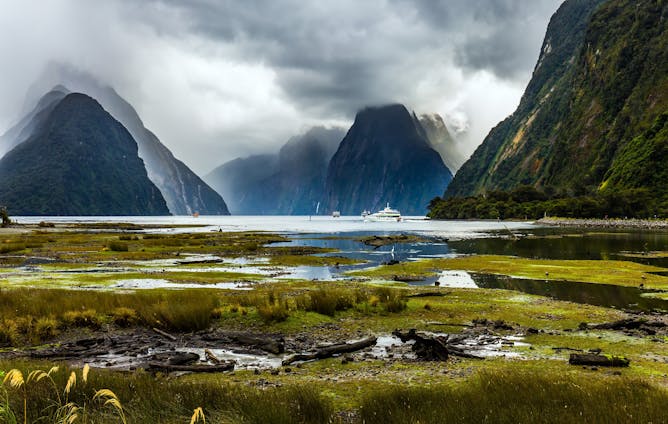
Shutterstock/kavram
Giles Dodson, Massey University
Conservation efforts can result in conflict between different interest groups, but outcomes could improve if we allowed a greater degree of public participation, beyond mere consultation.
|
From our international editions
|
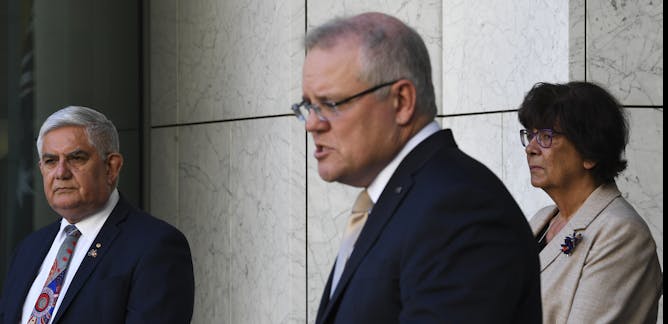
James Blackwell, Australian National University
Scott Morrison’s comments on the 14th anniversary of the Stolen Generations’ Apology show a lack of understanding of what is really needed to ensure healing for First Nations peoples.
| |

Sharon Horwood, Deakin University
Social media does have some redeeming features – and its utility will depend on how you use it. But for many of us, the reward no longer outweighs the harms.
|
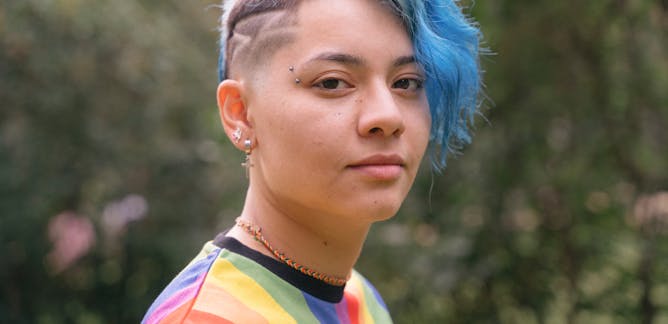
Cristyn Davies, University of Sydney; Alessandra Chinsen, Murdoch Children's Research Institute; Ken Pang, Murdoch Children's Research Institute; Kerry H. Robinson, Western Sydney University; Rachel Skinner, University of Sydney
Trans young people flourish with support from family, friends, and the broader community. Future commentary about trans young people’s rights needs to take this into account.
| |
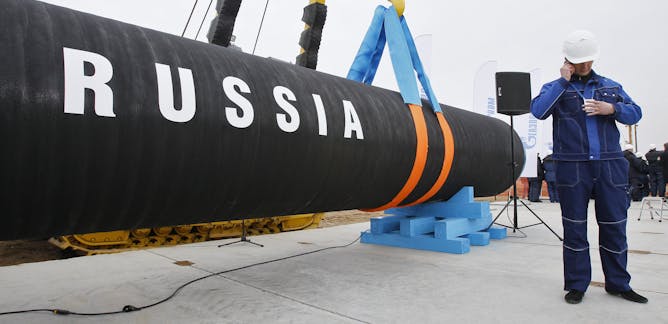
Ryan Haddad, University of Maryland
The Biden administration hopes the threat of harsh sanctions from a united West will deter Putin from invading Ukraine. But Russia has a long history of using energy to divide the US and Europe.
|
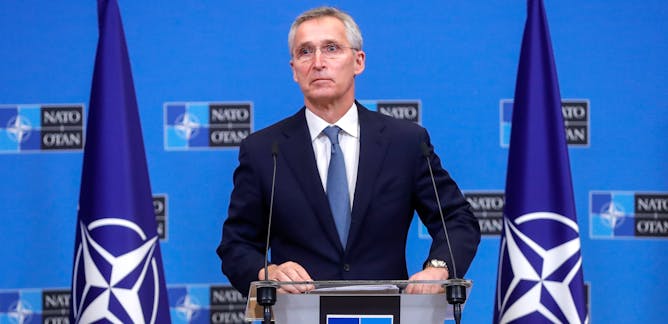
Gavin E L Hall, University of Strathclyde
Russia insists that there was an agreement not to expand Nato eastwards after the end of the USSR. History begs to differ.
| |

Stephanie Alice Baker, City, University of London; Michael James Walsh, University of Canberra
Anti-vaccination Instagram posts deliberately depict mothers in a certain way to drive up rates of vaccine hesitancy.
|
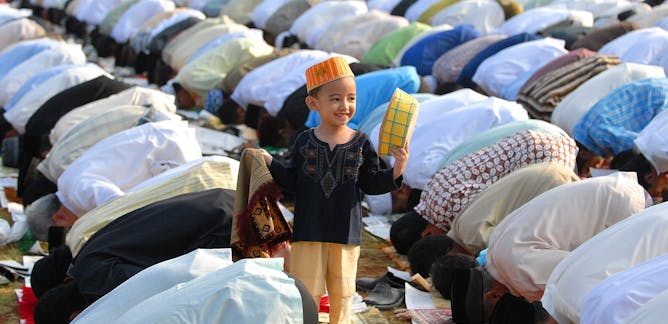
Hamzah Fansuri, University of Heidelberg
My ongoing research has shown the influences of the two institutions are dwindling, especially in urban settings.
| |

Robert Danisch, University of Waterloo
With the apparent slide towards authoritarianism in the U.S., Canada must be ready and able to defend and champion our democracy.
|
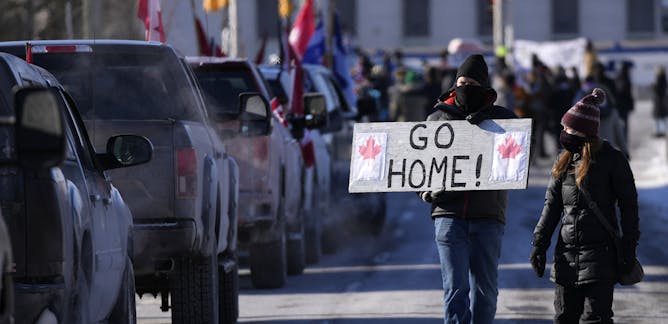
Kawser Ahmed, University of Winnipeg
Both faith and civil society groups have a role to play in speaking against polarization and the risk of violence, since these organizations enjoy bipartisan support.
| |

Jennifer Lacy-Nichols, The University of Melbourne; Priscila Machado, Deakin University
Dietary guidelines can do a better job clarifying the differences between beneficial and harmful forms of processing.
|
|
|
| |
| |
| |
| |
|
|
|
|
|
|
|